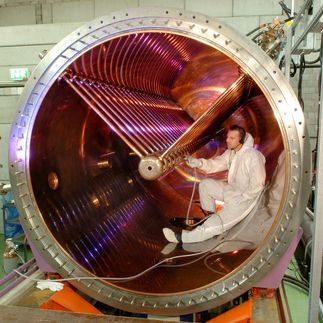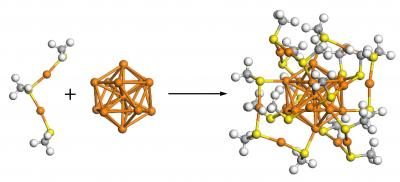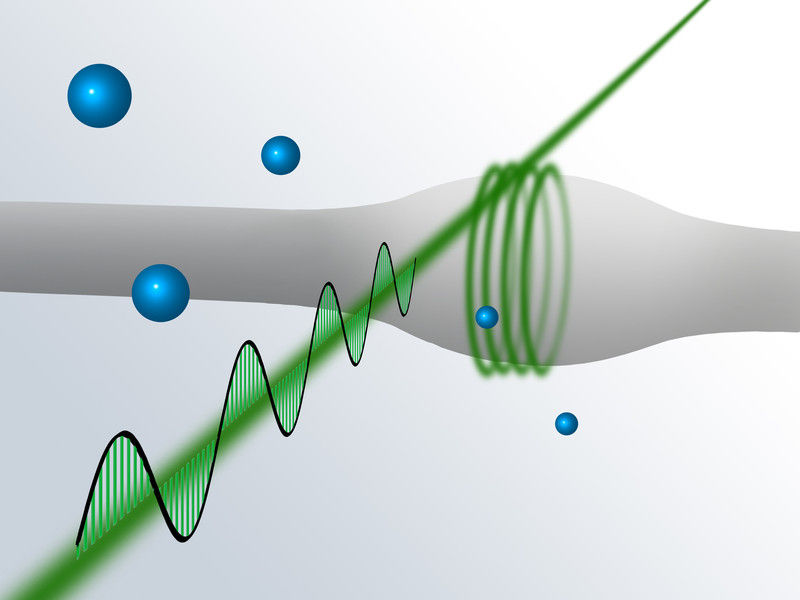20 researchers to receive Nobel Prize-sized awards in Helsinki
Advertisement
Twenty young researchers, who have been selected by high-level scientific peer review, will gather in Helsinki to receive awards of as much as EUR1.2 million from the fourth and final Call of the European Young Investigator Awards (EURYI) scheme. These awards will allow the researchers to create teams in Europe to focus on cutting-edge science.

World Conference on Research Integrity
Luísa Ferreira, ESF
EURYI is designed to attract outstanding young scientists from around the world to create their own research teams at European research centres and launch potential world-leading research careers. Most awards are between EUR1,000,000 and EUR1,250,000, comparable in size to the Nobel Prize.
The average age of this year's winners is 33.1, making it the youngest group in EURYI's history. (The average age of last year's winners is 35.4.). Six of the awardees are women, making it the highest number of female winners in any year.
The list of the 2007 Awardees includes researchers who will be based in eight countries - Czech Republic, France, Germany, Netherlands, Poland, Sweden, Switzerland and Turkey. Their original ideas are ranging from new techniques to manipulate antimatter to disease gene mapping and functional genomics in the domestic dog.
The EURYI awards have been offered in this 4th Call by 17 research councils from 15 countries in an open competition with no 'juste retour'. Candidates are selected on the basis of their future potential and their academic and research excellence.
Competition this year has been as intensive as ever, with 474 applications received. The EURYI Awards scheme was developed by the European Heads of Research Councils (EuroHORCS), in collaboration with the European Science Foundation (ESF), to attract outstanding young researchers from anywhere in the world to work in Europe for the further development of European science, contributing to building up the next generation of leading European researchers.
The First Call of the scheme was launched in September 2003, and the first three Calls have resulted in 75 awards. Candidates are selected by a two-stage process, firstly at the national level by the relevant Participating Organisation and secondly at the international level by high-level scientific panels managed by the ESF. ESF's role in the coordination and selection processes of EURYI is supported by funds from the European Commission's Framework Programme 6.
The 2007 Awardees will receive a diploma, presented by the Nobel-laureate Dr Tim Hunt, at a special ceremony being organised in Helsinki, Finland. Press invitations and more detailed information about the awards will be circulated in due time.
List of Awardees
Dr. Anastasia Ailamaki (Switzerland) - Efficient data management for scientific applications
Dr. Jeroen J.L.M. Cornelissen (The Netherlands) - Virus Capsids as Confined Reaction Spaces
Dr. Nynke Hester Dekker (The Netherlands) - Molecular Motors Handling DNA and RNA: Single-Molecule Experiments and Implications for Cellular Function
Dr. Hilmi Volkan Demir (Turkey) - Novel molecular optoelectronic nanodevices hybridized on micro chips for new functionality
Dr. Andre Fischer (Germany) - Epigenetic mechanisms in learning processes, age related cognitive decline and neurodegenerative diseases
Dr. Karl Gademann (Switzerland) - Directing neurite outgrowth through synthetic natural products
Dr. Sonia Garel (France) - Wiring the forebrain: roles and mechanisms of tangential cell migration in the basal ganglia
Dr. Oscar Gelderblom (The Netherlands) - The evolution of financial markets in Pre-Industrial Europe: A Comparative Analysis
Dr. Masaki Hori (Germany) - Precise laser and microwave spectroscopy of antimatter atoms - new techniques to manipulate antimatter
Dr. Kerstin Lindblad-Toh (Sweden) - Disease gene mapping and functional genomics in the domestic dog
Dr. Matthias Lutolf (Switzerland) - Bioengineering Microarrayed Stem Cell Niches
Dr. Gregor Rainer (Switzerland) - Cholinergic Mechanisms of Learning and Cognition
Dr. Philippe Schlenker (France) - Presupposition: A Formal Pragmatic Approach
Dr. Kai Phillip Schmidt (Germany) - Exotic phases and excitations of unconventional Mott insulators
Dr. Martin Schnabl (Czech Republic) - Exploring String Field Theory - Can It Explain Quantum Birth of the Universe or Properties of Elementary Particles?
Dr. Natalie Sebanz (Germany) - Cognitive and Neural Mechanisms of Joint Action
Dr. Sylvia Serfaty (France) - Mathematical study of some equations related to physics, mechanics and optimal control
Dr. Terence Strick (France) - Single-molecule studies of biological nanomachines
Dr. Rufin VanRullen (France) - Perceptual and Attentional Dynamics: Periodic Operations of the Brain
Dr. Maciej Wojtkowski (Poland) - Structural and functional imaging by Fourier domain Optical Coherence Tomography with Optical Frequency Comb method
Other news from the department science
Most read news
More news from our other portals
See the theme worlds for related content
Topic World Spectroscopy
Investigation with spectroscopy gives us unique insights into the composition and structure of materials. From UV-Vis spectroscopy to infrared and Raman spectroscopy to fluorescence and atomic absorption spectroscopy, spectroscopy offers us a wide range of analytical techniques to precisely characterize substances. Immerse yourself in the fascinating world of spectroscopy!

Topic World Spectroscopy
Investigation with spectroscopy gives us unique insights into the composition and structure of materials. From UV-Vis spectroscopy to infrared and Raman spectroscopy to fluorescence and atomic absorption spectroscopy, spectroscopy offers us a wide range of analytical techniques to precisely characterize substances. Immerse yourself in the fascinating world of spectroscopy!

































































